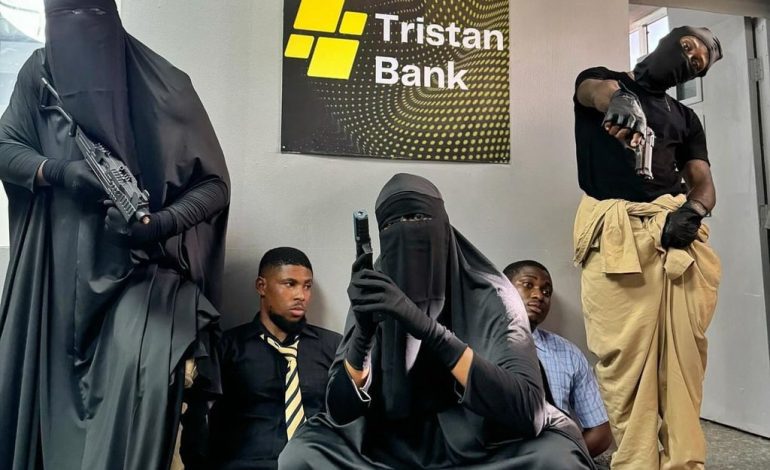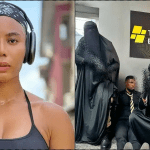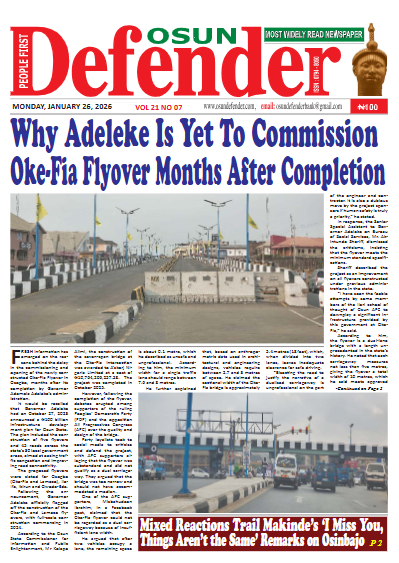”We Will Not Overlook It”, FG Responds To Nancy Isime’s Robbery Scene In Hijab

The Federal Government through the National Film and Video Censors Board (NFVCB) has reacted to calls for the ban of a controversial film featuring Nancy Isime.
Recall that Isime recently shared photos from scenes of the yet-to-be-released movie, where she could be seen wearing a niqab while holding a gun.
A niqāb is a long garment worn by some Muslim women to cover their entire body and face, excluding their eyes.
The post, however, provoked a chorus of condemnation on social media, with some users expressing anger with the actress for dressing in Muslim attire while displaying a robbery scene from the movie.
Joining the fray, the Muslim Rights Concern (MURIC) called on the NFVCB to ban the controversial film, which it described as “satanic”.
Reacting to the calls in a statement on its verified Xhandle, NFVCB said it will not overlook any film that abuse or undermine religious.
The board disclosed that the film is still in production and has not been submitted for classification.
The board said the film producers are “working to address the issues raised by the public”.
The NFBCB added that it will not overlook creative works “that abuse, denigrate, or undermine religious, cultural and ethnic sensibilities”.
According to the statement, “The nfvcbng have received complaints about an upcoming Nigerian movie that associated the Hijab, an outfit attributed to Muslim women that symbolizes respect, modesty, and religious devotion, with negative moral vices.
“Our check revealed that the movie has not been released, and it has not been submitted to the NFVCB for classification as required by law.
“However, we have been able to reach the producers of the film and have taken steps to address the concerns raised with the producers.
“We restate that as a classification agency, the NFVCB will not overlook any film or video works, including dramatized short contents (skits) that abuse, denigrate, or undermine religious, cultural and ethnic sensibilities.
“We commit to contributing to the positive transformation of the Nigerian society through classification of films and video works whilst balancing the need to preserve freedom of expression within the law, and limit social, cultural and religious harm caused by films.”

Sodiq Lawal is a passionate and dedicated journalist with a knack for uncovering captivating stories in the bustling metropolis of Osun State and Nigeria at large. He has a versatile reporting style, covering a wide range of topics, from politics , campus, and social issues to arts and culture, seeking impact in all facets of the society.









